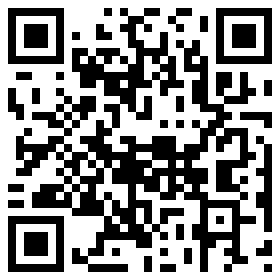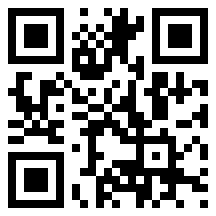My son found the above video when he Googled 'Youtube' and 'Vance Stevens'. It's from the FLNW event I attended in Bangkok recently, a kind of spontaneous, ad-hoc, movable feast with an unconferency feel to it. I thought this would be a good place to put it, and next day I found a posting in the Learner Autonomy and iLearn group on Facebook with a question getting right to the crux of the future of learning in a networked world. While preserving the identify of the poster (or if he asks me to, I'll credit him here) I decided to post his question here with my comments:
The question
I've been wondering if technology does really enhance teaching/learning or if we just use it because it is out there and looks good in our resume! At a conference, I heard the question: “Do we use technology in ELT because it solves our teaching/learning problems? Or do we use it because it is out there for everyone to explore?
I believe that many(?) of us come from a generation that was not born with computers around and less in our foreign language learning processes. This background surely limits our views on the real advantages of modern technology.
I have mixed feelings when I see myself or others struggling with technology. Our heavy training was not on technological competencies and it seems we cannot leave those tasks to more technically competent co-workers from the computer science department. As foreign language teacher/advisors, we are expected to add all these new skills to our old bag of tricks. I bet it's time to make our discipline a multi-disciplinary profession.
At times I see how we bend technology for our own sake and we tend to believe that it is just a nicer, faster and more colorful way to achieve the same academic goals we have already 'achieved' with a pen, paper, chalk a board or a book in our hands.
Thanks for any comments this may raise.
My reply
Your comments get right to the point, and I'm happy to say the answer is YES, technology does indeed enhance exactly what you already know how to do with a pen, paper, chalk, etc. Pens, paper, chalk are in fact technology. Sometimes these are the most appropriate technologies to apply to a given pedagogical nut you wish to crack. I myself use a board marker and whiteboard (slightly tech advanced from chalk etc, but does the essentially same thing). In part 2 we'll ratchet up the technology scale ...
You might say that a WIKI is a tech advancement over that and in some cases, where you want to preserve your chalkboard, and let students write on it AFTER class, and say embed video or audio in it, or have students record with Audacity and embed their own audio, and bring that to class next time and start from there, might POSSIBLY be an improvement over the old method where the board is erased at the end of the day.
No matter what the metier, workpeople are constrained by available tools and knowledge of those available. Nowadays when so many new tools are coming online, it's good for teachers to know what's available. How do you do that? You join a community, for example Webheads at http://groups.yahoo.com/group/evonline2002_webheads where you can LISTEN to conversations on what tech is available and how teachers are using it, the same way you would learn a foreign language, just go where it's spoken and listen, and when you feel comfortable, join in.
This would give you a better knowledge of what tools to use. After that it would be up to you to decide, with your improved knowledge of what tools you could alternatively use, which ones would be best suited to the pedagogical nuts you wish to crack.
I think that any reasonable argument would reach the conclusion that it's best to at least KNOW what is available and then consider from that perspective whether it's best to continue using the tools you have available now or to try out some new technologies if those appear better suited to the job at hand.
The most important point, as you have pointed out, is that the job at hand has not changed. Your methodology does not change. You can and should continue to teach using the techniques you find effective. The question which you asked and which we all should seek to answer from an INFORMED perspective, is when does technology HELP what you are already doing, and when might it get in the way.
So no, we don't use it just because it's there, but because it's there, we should seek to inform ourselves what is out there, and use that which will help our students achieve a better grasp of whatever it is we are trying to teach, or more correctly, what it is we are trying to help THEM to LEARN (which is another issue, relating more to the autonomy side of our discussion).
As with learning a foreign language, it's not enough to go to a country where the language is spoken, you must go with intent and desire to learn that language. With technology, teachers must WANT to learn it – that is accept that it might be a valid addition to a bag of existing tricks. At that point, where you are truly receptive (where you are AUTONOMOUS, another way of putting it), you find that it's all around you, and if you converse with others trying to learn it, easy to pick up.
Hope that helps, and sorry for the delay in replying,
Vance


 Tag in your DEL.ICIO.US account
Tag in your DEL.ICIO.US account











6 comments:
Hi, Indi! isn't it amazing how English as a second language teachers and EFL teachers do understand how important it is to integrate technology in our classes? Your comparison of learning another language and learning the language of technology is a great way to explain why it is that it is so difficult for some teachers to grab the concepts of using new technologies to help our students learn according to the time they are living now.
I enjoyed so much this post and what it is crystal clear to me is that we have to keep on working in that direction... connecting the world and connecting the minds our students. Thanks to the person who posted the original question.
Vance,
As an educator who was educated within the digital realm, I often find it hard to explain why I would use some technologies with my students. I guess the whole idea of the digital mindset is at work here.
I have heard people say that the tech gap will fade with time, but I find it hard to believe since "web 3.0" will soon be upon us. I agree with you that it is better to know what is available so that we can make that choice.
Thanks
Cory Willis
We have just come to a very similar conclusion in the VITAE project about the acculturation analogy. I love your comparisons and may ask for permission to recycle them in our work.
It's funny that you get a comment wondering why language teachers are so keen to use IT compared to other subject teachers. I was at a conference recently when one of the speakers bemoaned the fact that the language teachers were the most resistant to the idea!
Hi Ann,
Thanks for your comments (and the others appreciated as well :-) and of course you may use anything of mine as long as you cite the source, as in any academic attribution.
I was recently in New York and Exeter, a very limited time in Exeter unfortunately, for the TESOL and IATEFL conferences respectively. In TESOL there has been a very active CALL Interest Section for some time and the Electronic Village concept (a CALL-IS creation) has expanded into 2-month free seminars just prior to each conference, so if you associated with that group you might think language teachers were early adopters of technology.
IATEFL has a very active CALL SIG as well but the people I chanced to meet there, with many rather singular exceptions, did seem in comparison to include a large sample of those dismissive of technology, and some of the singular exceptions were commenting on that in the forums set up for the lively online parallel conference, which didn't mix much with the f2f one unfortunately.
I'd be interested in knowing more about your perspectives, and also having references to the work you think mine would help support.
Vance
Why use web 2.0 ?
Three answers in so far as my French University Science Students are concerned.
1). MOTIVATION
2). using English with a REAL purpose (watching all those Edublogs videos and reading instructions!)
3). it actually increases contact with the individuals in the class - which unfortunately is often lacking on our short courses.
Seeing all this, my colleagues are now getting interested in the idea.
My star pupil (4th year University):
http://marjo.edublogs.org/the-poster-session/
and a wiki for four 3rd year classes:
http://l38phys.pbwiki.com/
Dear Vance,
When I read your post, I thought of one my favorite photos (it's not mine but from a really nice initiative called 'Sincita', i.e. 'no quote'), which you can find here, and I translate: "Technology starts in your head".
Anyway, I'd like to invite you to follow this meme called 'Passion Quilt', precisely related to uploading a picture that shows what you're most passionate about learning.
Greetings from Valencia (Spain)!
Post a Comment